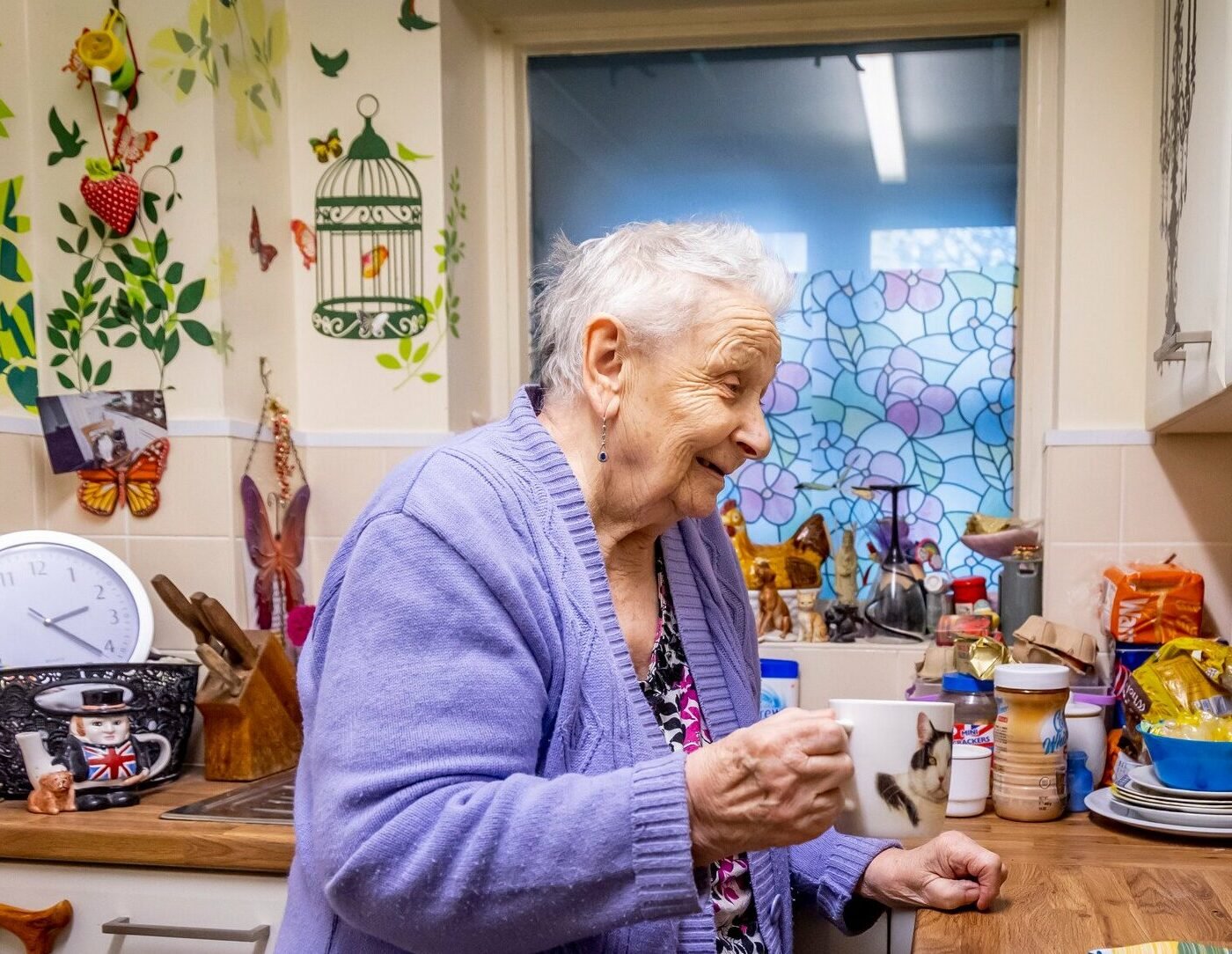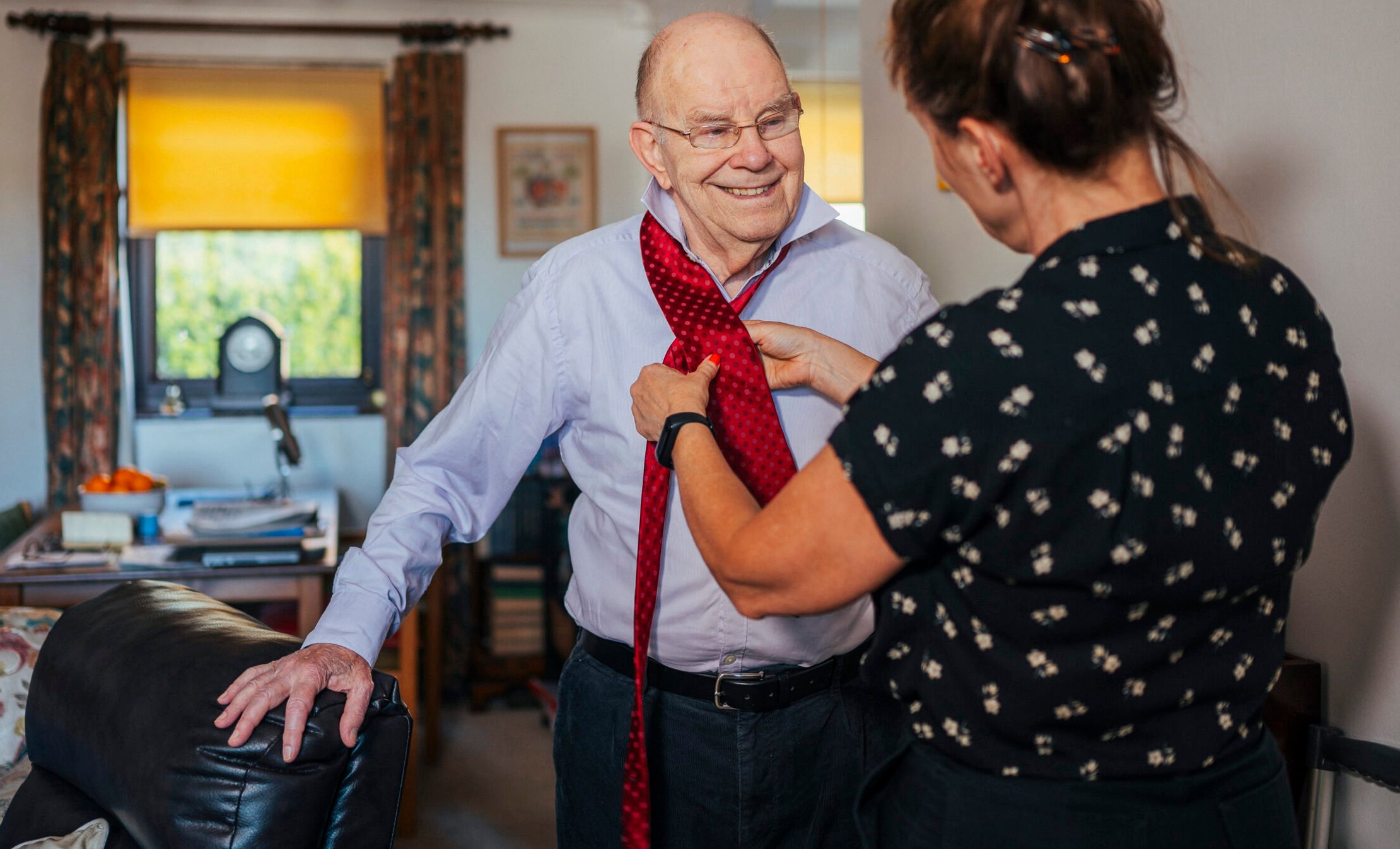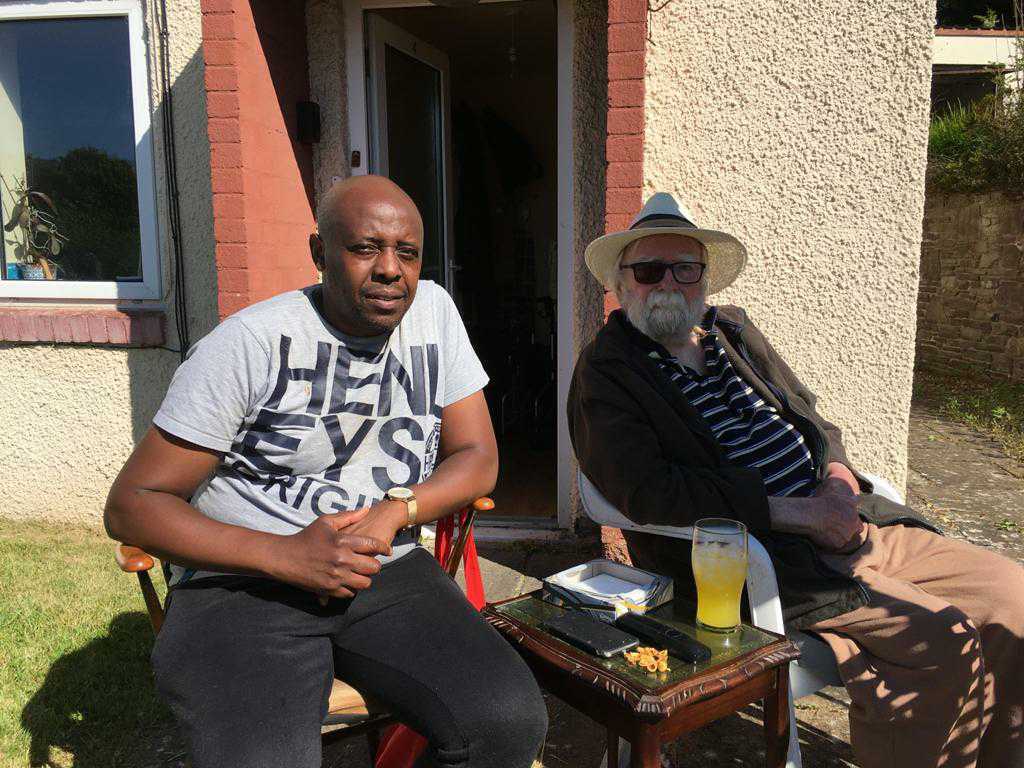Care after a hospital discharge
Following a discharge from hospital many people will need some additional help with everyday tasks at home while they recover. Elder's live-in care services can help you find a self-employed carer with the specialist skills and experience to make the transition from hospital smoother and safer for your loved one.

Why choose live-in care after discharge?
After a spell in hospital it’s common to find certain tasks difficult once you’ve returned home. it’s why hospital staff often won’t discharge a patient unless they’re confident they have the right support network in place to aid a safe recovery. Recovery and rehabilitation can be especially hard for older people as it can take a little longer to regain strength and mobility, and some medical conditions such as dementia can make it unsafe for them to live independently.
Live-in care involves an experienced carer moving into a person’s home to provide personalised care. They’ll live with them 24/7, adapt to their daily routine and offer assistance in the areas of daily life that have become difficult to support a safe discharge.
- Recover in the comfort of home, away from a busy hospital ward or residential care home
- Ease pressure on family who may otherwise need to take on the caring role
- Reduce the risk of falls by 1/3, compared to receiving care in a care home*
- Reduce the risk of readmission. 1 in 6 emergency admissions of people over 75 happen within 30 days of a discharge**
- Get better continuity of care via a dedicated carer, rather than a staff of different carers
- Support is personalised to the individual, their recovery goals, and their preferred routine
Source: *The Live In Care Hub | **Age UK and NHS England

What can a live-in carer support with?
Live-in carers on the Elder platform can play a vital role during recovery. They can also provide ongoing care focused on improving your loved one’s quality of life if they are living with a complex condition or illness. Carers can support with a wide range of daily life activities, including –
- Personal care, such as washing and toileting
- Meal preparation, cooking and hydration
- Domestic tasks such as cleaning and laundry
- Prompting the correct medications at the right time
- Seeing friends and family
- Staying mobile and active
- Enjoying hobbies and interests
- Running errands such as picking up prescriptions and groceries
- Looking after pets
The self-employed live in carers on Elder’s platform are not expected to support with nursing care / nurse-led care, such as handling controlled medications and wound care. If this type of care is required, your discharge coordinator or discharge planning team at the hospital should be able to advise on community health services or a district nurse to provide this additional support. Find out more.

Using Elder for post-discharge care
Elder connects those looking for care with the most suitable local carers. Our matching technology and online self-management platform has helped thousands of families create a personalised care arrangement that’s fully flexible to their needs.
- Our clinical team of registered nurses can help you breakdown complex discharge processes and help you make informed choices
- Get personalised support throughout the discharge arrangements from an experienced Elder care advisor
- Choose your own carer, and chat to them to ensure they’re the right fit. All carers have a clean enhanced DBS/PVG, have provided verifiable references, and must pass a series of screening assessments
- Get care in place in under 24 hours in cases of unexpected discharge, or create your care profile, review potential carers and choose your carer weeks before the day of discharge, with the freedom to change dates and timings if you need to.
- Build carer rotations and breaks around family life and important daily tasks
- No upfront costs, you can start your care request and carer search for free
- With Elder there’s no surcharges at peak times such as over bank holidays or weekends
- Only pay for the care you need by building your own flexible care solution. We only offer rolling contracts so you won’t be tied in if your situation changes.
- Communicate with carers and Elder support in real time with online chat within your MyElder account
- Your MyElder account keeps all information in one place, making it easier to manage and co-ordinate care as a family.
- Our care advisors and family support team are here by phone 365 days a year.
How it works
Share your care request
Tell us what you're looking for using our simple request form, and build your care profile to give us a complete picture of the care that's needed.
Select your carer
You'll start receiving profiles of your uniquely matched carers. Review their details, chat online to carers you'd like to know better, or arrange a video or phone call.
Prepare for care
Use MyElder to communicate with your chosen carer and the Elder support team, manage your care arrangement and schedule, and set up secure payment
Jim's story
After ongoing health problems and being discharged too early, Jim was admitted to hospital a couple of times in a short space of time.
He was desperate to get back home, however his family knew he needed additional care to keep him safe and prevent a third admission. A care home placement wasn’t an option, so they reached out to Elder.
Now, with the support of his live-in carer tabby, Jim is more active, taking on daily activities with confidence, and enjoying having a new friend to chat to and share ideas with.

Types of post-hospital care
Live-in care
A carer of your choice will move in to provide long-term care. They'll commonly stay for 4-6 weeks, before taking a week off, during which a temporary carer will step in to provide cover.
Short-term care
A carer will move in for between 3 days and 6 weeks. This type of temporary care can provide short term rehabilitation to people after surgery or a sudden illness.
Respite care
Respite live-in care can help ease the pressure on family caregivers. A professional carer moves in to provide the specialist care that an unpaid carer may be unable to provide.
Palliative care
Live-in carers can be part of a person's palliative care team, providing practical and emotional support afrer a hospital stay to those with life-limiting conditions.
Care funding
From local authority to NHS Continuing Healthcare funding, you may be entitled to some financial support. Find out more about the assessment process and where to get financial advice here.